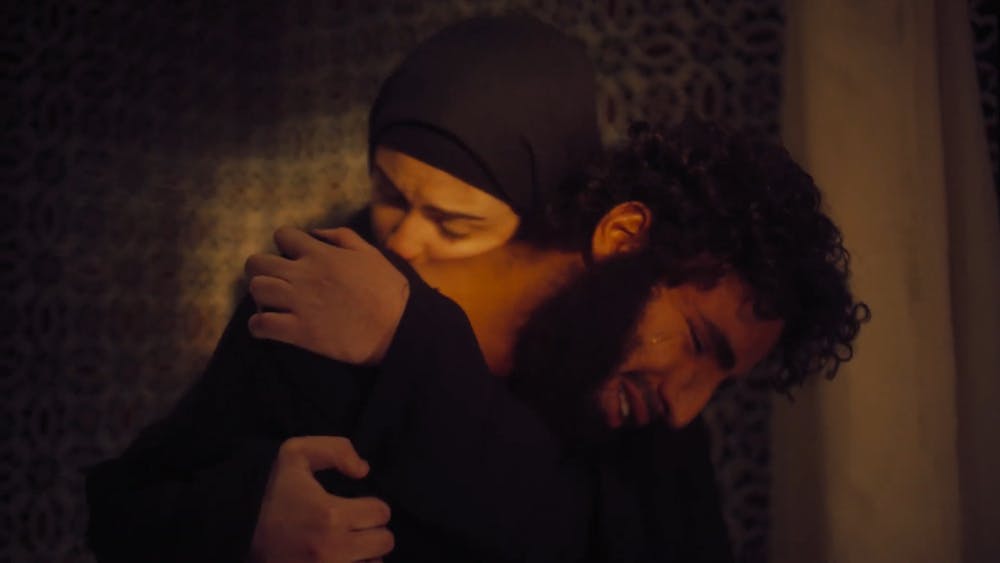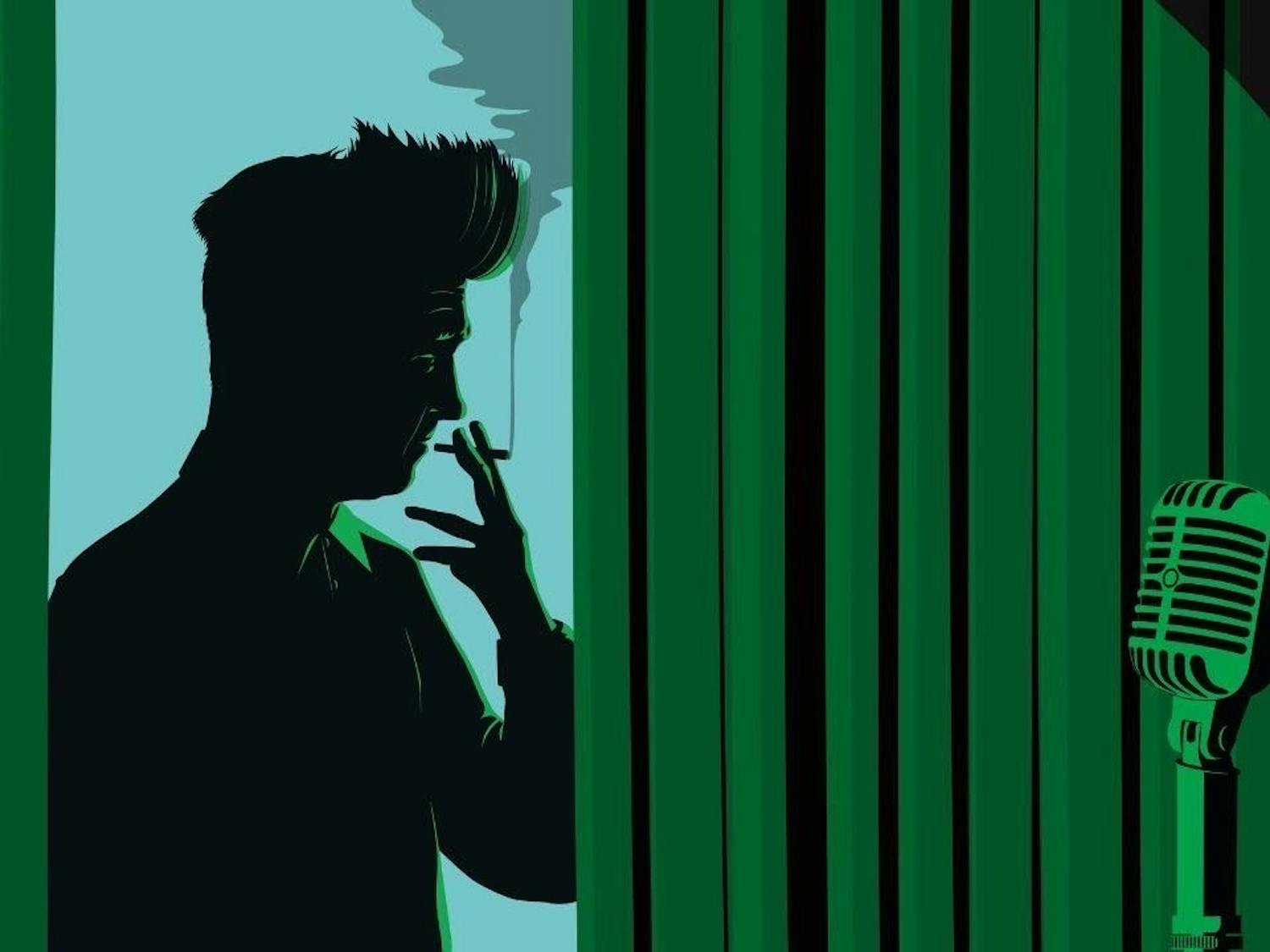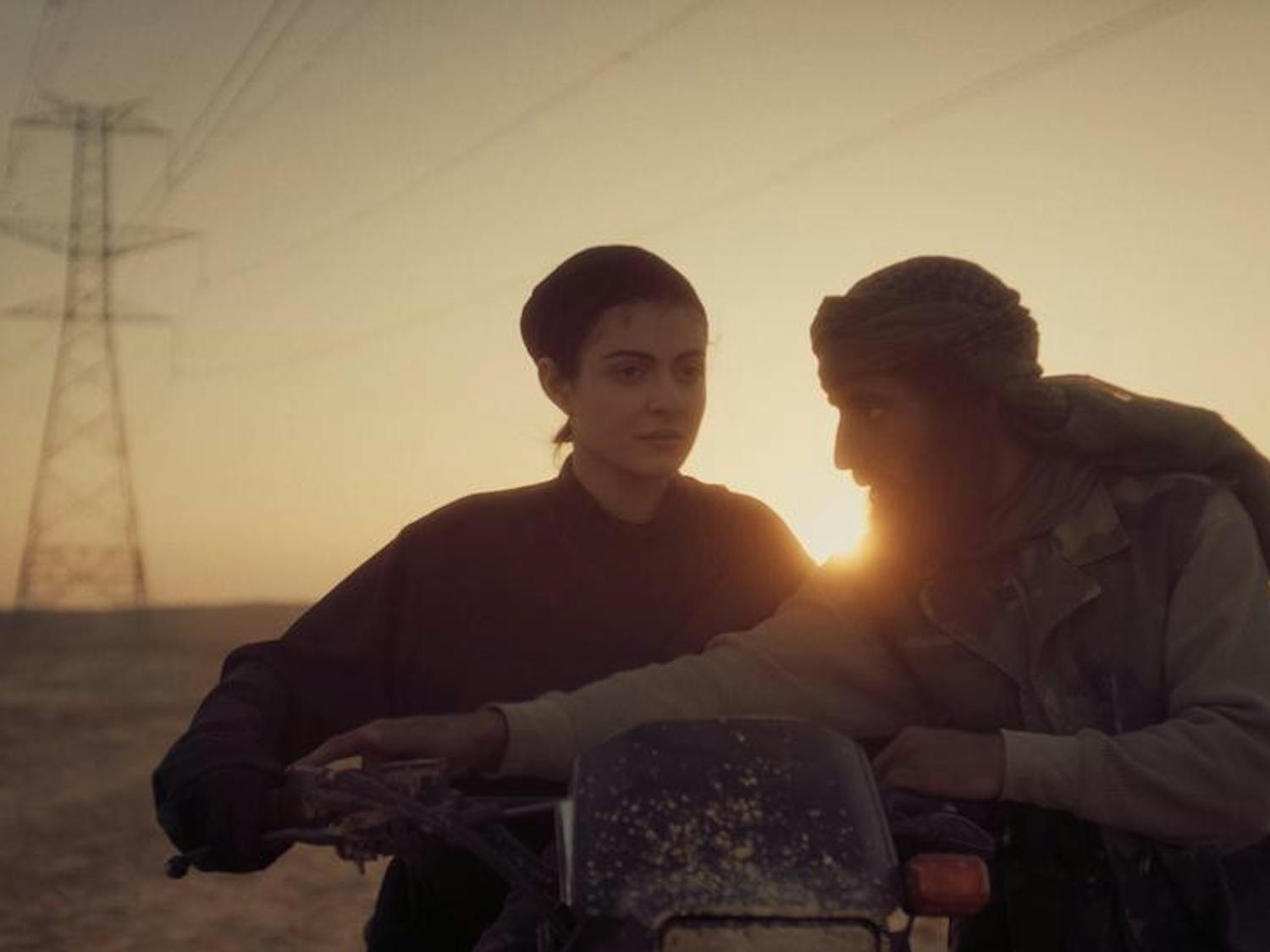What is the line between the destruction of music and the detonation of bombs? Adil El Arbi and Bilall Fallah’s direct a part music, part narrative, and part coming-of-age story about ISIS. One where two brothers battle against radicalization, complicity, and gruesome violence in their struggle for justice. Older brother Kamal (Aboubakr Bensaihi) and younger brother Nassim (Amir El Arbi) grow up in Belgium, where protest is common and music is communal. Yet in IS and ISIS-controlled Syria, it is be radicalized or killed, and music is burned alongside its producers. In its place is the cacophony of bombs and gunshots, of the yells of parents and the cries of children.
Kamal starts off as a rapper, immersed in a Belgian-Moroccan-Muslim culture of juvenile rage and disillusionment. In order to pursue his own vision of justice, he abandons younger brother Nassim and single-mother Leila (Lubna Azabal) to go to Syria, where he must choose between dignity and death over and over again. This move leaves younger brother Nassim stuck: is he to live in his mother’s fear of his eventual departure (by the streets of Belgium or the bullets of Syria), to stay silent when his community abandons him for his brother’s choices, or to transgress entirely? With his brother gone, he is vulnerable to the charismatic and encouraging ISIS recruiter (Fouad Hajji) who whispers in his ear something better, a vision beyond war, where the wrongdoings are overshadowed by promises of community and justice.
What is the difference between rumors and facts when soldiers may never return home with their stories? The Moroccan community holds fear, hope, and war close, and in Belgium most go to great lengths to distinguish themselves from ISIS-recruits, from immigrant terrorists, from a people who feel they are deserving of relentless police brutality and violence. This culminates in the football field of Nassim’s school, where a classmate stops the game of ball in protest of Nassim’s s0-called terrorist brother. The same brother who was just recently a member of the community, a rapper and mentor, now being used as an example of the cruelty and immorality of ISIS: beware, even as terrorism seems unimaginable, it is within our community and here in our fellow enemy, a ten-year-old boy. Silence means being complicit in the construction of a new story, but being violent is an acceptance of the same label his brother took on.
Most of Rebel is unpredictable, where the characters seemingly defy their statistics and the odds pitied against them. Even with the intensity and detail given to Kamal and Nassim, they are still viewed in the third person, as characters in a story we are to discover throughout the film. Leila plays one of these characters for much of the movie: she is decidedly harsh with Kamal, over protective with Nassim. She is the mother. She is the character many stories take for granted as always being there, as providing a comforting return from tumultuous action. Yet, her children get taken away from her, and she must start her own journey –take her own narrative— to search for her family she believes still exists and a journey with a decided end.
Even if Leila is to find her son, how many others will never make it home? She journeys across silent offices in Belgian, officials unimpressed with another runaway Moroccan. She meets families in the silence of trucks, amongst the chatter of refugee camps, and in the support groups of other grieving families. One mother in particular recalls how her check-ins with her soldier-son turned less frequent, from every week to never, from alive to dead. If one child is no longer a soldier, if they are to reunite, to live with their family under one roof and on one border, where does this leave the other 100,000? This is the story of one family’s convergence with ISIS, but it is just as much the story of any family who has lost someone to the war, who never made it back together. If incredible might, courage, persistence and even the luck of this family are not enough to save them from violence and separation from ISIS, how do we tell the story of losing someone and more importantly, what is to be done?
This film critique was written by a youth fellow in the Bullhorn x Philadelphia Film Society Youth2Critic Fellowship.
The PFS Youth2Critic Training Fellowship is a program built around the belief that film criticism helps shape our cultural landscape. It shapes the films we see, but even more, it shapes how we remember those films into the future. Film criticism is a record of the way those we give a voice view film. And PFS believes young people's perspectives need to be lifted up and given that voice.
The Youth2Critic Fellowship gives 4-6 high school students each year the unique opportunity to be trained in the art of criticism by Philadelphia film critics and scholars, to see word class cinema as a part of the Philadelphia Film Festival and PFS year-round programming, and to publish 5-7 pieces of original film criticism in the Bullhorn.
Enjoy what you're reading?
Signup for our newsletter
Thank you to the Philadelphia Film Society for their collaboration and support.





